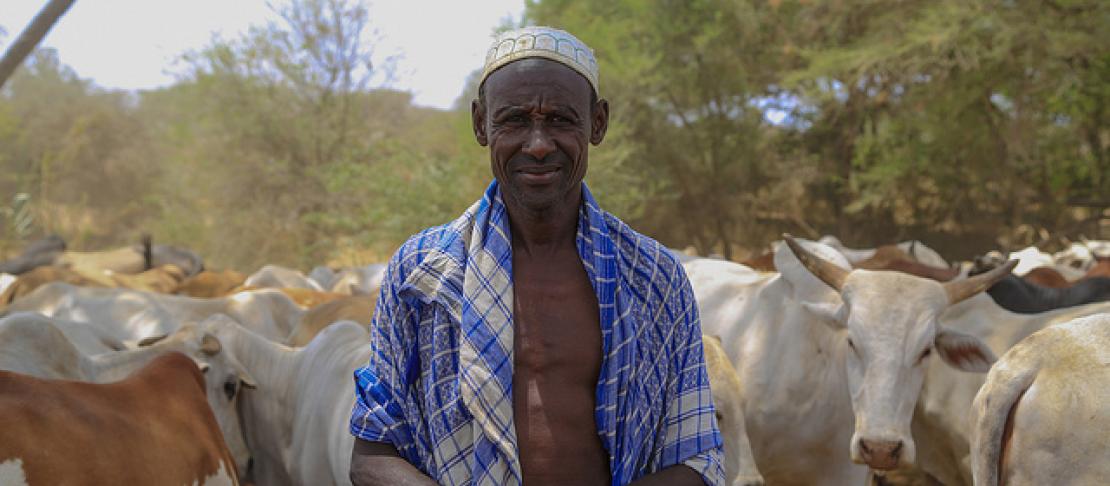Addressing climate change at the policy level

Kenya’s Ministry of Environment, Water and Natural Resources (MEWNR) is coordinating efforts to develop a Climate Change Policy and Bill. The goal is to enhance resilience to climate change effects and low carbon climate resilient development; the cornerstone of Kenya’s Vision 2030.
Proposed interventions include: sustainable utilization of natural resources; mainstreaming climate change response in adaptation and mitigation; integrating climate change risk and vulnerability into Environmental Impact assessment (EIA) and Social Economic Assessment (SEA); establishment of greenhouse gases (GHG) inventory and incentives to promote public, private and other sectors that will be involved in climate change efforts.
The CGIAR Research Program on Climate Change, Agriculture and Food Security (CCAFS) is among key stakeholders reviewing the draft policy and bill with recommendations being forwarded to the policy makers.
“It’s a great step for Kenya to have all these stakeholders working together towards ensuring the climate change bill is passed in parliament by June 2014,” noted the Honorable Member of Parliament Dr. Wilber Otichilo during a stakeholder consultation workshop held in February.
Climate Change Action in Kenya
In comparison to other East African countries, Kenya is much advanced in terms of climate change planning and action. The Kenya government has developed policies to tackle climate change as detailed in its National Climate Change Response Strategy (NCCRS) launched in 2010. The NCCRS highlights the robust measures needed to address the challenges posed by climate variability and change in Kenya. Subsequently, a comprehensive National Climate Change Action Plan (NCCAP) 2013 – 2017, to implement the NCCRS, was launched in February 2013 and endorsed by the cabinet in March 2013.
Read more: Climate action in Kenya: New national plan launched
From policy formulation to implementation in agriculture
Since July 2013, CCAFS together with the MEWNR and the Ministry of Agriculture, Livestock and Fisheries (MoALF) have brought together stakeholders to develop priority actions for the agricultural sector in Kenya. Drawing upon the NCCAP, the stakeholders discussed sector specific areas of investments. This is because investment in climate smart agriculture technology and practices by the Kenya government and other stakeholders is necessary for current systems to cope with climate change.
During Kenya’s first national adaptation planning meeting for agriculture, it was agreed to establish a consortium to generate specific activities in targeted areas, timelines and budgets, based on a number of priority actions. CCAFS therefore continues to work with partners to develop a concept based on the actions and investments proposed by four thematic working groups: i) Climate Smart Agriculture technologies and practices, ii) Finance and investments, iii) Knowledge and capacity building, and iv) Policies and legal frameworks. The concept will be used to mobilize financial and technical resources and to reach out to the County governments to support the piloting and scaling out of the priority actions.
Watch: Fatuma Hussein, acting Director, Climate Change Secretariat within the Ministry of Environment, Water and Natural Resources speaks about Kenya's National Adaptation Planning Process
Planning for the future from national, to county, to farm level
As Kenya continues the process of devolution, the bill and policy proposes that County governments integrate climate change action plans into their County Integrated Development Plans. Consultations with county government officials reveal that counties need technical and financial support to integrate climate change adaptation and mitigation actions in their development plans. Specifically, the counties call for guidance in sourcing for climate finance and linkages with international and national partners to support implementation.
To tackle the changing climate and prepare for the future, adaptation and mitigation strategies at the farm, county and national levels demand for excellent planning with climate smart practices accompanied by behavioral change and transformations in investment patterns.
“Climate smart agriculture ideas should be bold, energetic and still remain practical. The impetus is to create the perfect synergy between seemingly quite different agricultural sub-sectors (that is aquaculture, crops, livestock and agroforestry)," said CCAFS Program Leader for East Africa, Dr. James Kinyangi. "Stakeholders want to invest in CSA ideas that can merge modern and indigenous knowledge and practices into formal climate change mitigation and adaptation strategies. We need to make them concrete by linking them to the other sectors of the economy such as energy and water.”
Additional reading:
Read a CCAFS report on Planning climate adaptation in agriculture: Meta-synthesis of national adaptation plans in West and East Africa and South Asia
Catherine Mungai and Mary Nyasimi are Program Specialists at CCAFS. They are based at the International Livestock Research Institute in Nairobi, Kenya.



